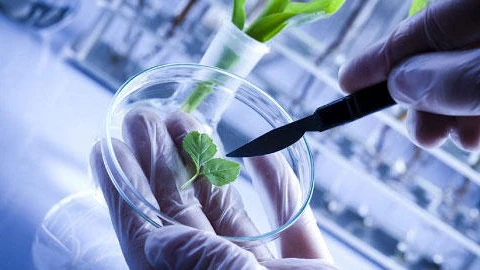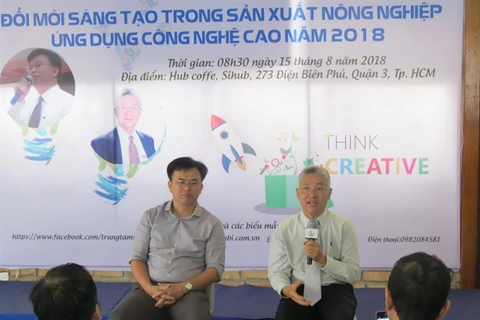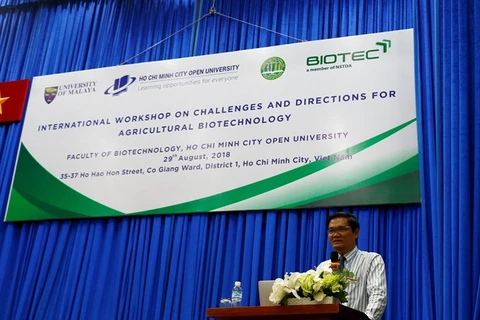HCM City (VNS/VNA) - Bio-technology is increasingly used in agriculture, medicine, environment, and food, including Vietnam, according to Dr Dang Thanh Dung of the Ho Chi Minh City Open University’s bio-technology faculty.
He told Viet Nam News: “The country faces a challenge in solving the issue of waste, including the huge volume of plastic.”
Bio-technology could be used to produce alternative products to replace plastic and reduce the use of chemicals in agriculture, he said.
In medicine, it is widely used in diagnosis, he said.
“I am doing research into a new enzyme system for programmable RNA cleavage,” he said, adding that it would be useful in cancer treatment.
Ribonucleic acid, or RNA, is one of the three major biological macromolecules that are essential for all known forms of life.
Dung presented his research yesterday at the International Conference on Biology organised by his university.
Several other scientists from Thailand, Malaysia, India, and Vietnam also presented their bio-technology applications.
Vandna Rai of the National Institute for Plant Biotechnology in New Delhi, India, shared her research on identification of genes for salt-tolerance rice.
Scientists from Thailand said their research could be applied to develop a new diagnostic test and species-specific anti-leishmaniasis drugs. It would also assist successful monitoring and control of this disease in their countries and neighbouring regions, they added.
Leishmaniasis is a sandfly-borne disease caused by the protozoan leishmania parasites in tropical and sub-tropical areas. – VNS/VNA
He told Viet Nam News: “The country faces a challenge in solving the issue of waste, including the huge volume of plastic.”
Bio-technology could be used to produce alternative products to replace plastic and reduce the use of chemicals in agriculture, he said.
In medicine, it is widely used in diagnosis, he said.
“I am doing research into a new enzyme system for programmable RNA cleavage,” he said, adding that it would be useful in cancer treatment.
Ribonucleic acid, or RNA, is one of the three major biological macromolecules that are essential for all known forms of life.
Dung presented his research yesterday at the International Conference on Biology organised by his university.
Several other scientists from Thailand, Malaysia, India, and Vietnam also presented their bio-technology applications.
Vandna Rai of the National Institute for Plant Biotechnology in New Delhi, India, shared her research on identification of genes for salt-tolerance rice.
Scientists from Thailand said their research could be applied to develop a new diagnostic test and species-specific anti-leishmaniasis drugs. It would also assist successful monitoring and control of this disease in their countries and neighbouring regions, they added.
Leishmaniasis is a sandfly-borne disease caused by the protozoan leishmania parasites in tropical and sub-tropical areas. – VNS/VNA
VNA























